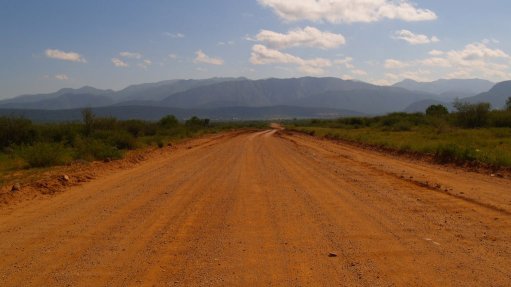Goal to connect half of people without energy access in Africa by 2030 can unlock $500bn in gains by 2040 – BCG
African leaders and international partners have set an ambitious goal to connect 300-million out of the 600-million people that still lack access to electricity in Africa, by 2030, which could unlock cumulative GDP gains exceeding $500-billion by 2040.
This could unlock a number of benefits for Africa, including the creation of millions of jobs, improved school graduation rates, reduced infant mortality and the avoidance of more than 350-million tons of CO₂ emissions, says management consulting firm Boston Consulting Group (BCG) in its 'Powering Prosperity Through Energy Access' report.
“Achieving universal energy access is the foundation of human and economic development. Though the challenge may seem overwhelming, the social and economic opportunities are immense. We must be ambitious and strive to reach the goal of connecting 300-million Africans by 2030.
“A goal which, if achieved, can drive the sustained economic growth and job creation that Africa desperately needs,” says BCG Climate and Sustainability and Energy practice in South Africa lead member and report co-author Kesh Mudaly.
The report highlights that, despite vibrant entrepreneurial activity, many African energy players remain small and fragmented and lack the scale for large capital projects.
Therefore, scaling up a new generation of local independent power producers and energy infrastructure firms is fundamental to delivering complex projects efficiently, attracting long-term capital, and building resilient regional operations, thereby reducing over-dependence on external actors, he says.
Further, with more than 50% of new connections projected to come from decentralised renewables, which are crucial for rural ‘last mile’ areas where grid extension is slow and expensive, countries must focus on scaling up distributed renewable energy and innovation.
Solar prices have fallen by nearly 80% over the past decade, enabling faster and cheaper deployment of minigrids and home systems.
Nigeria’s government, with World Bank support, is implementing an off-grid electrification project that subsidises private developers to deploy solar mini-grids, aiming to reach 2.5-million people and 70 000 businesses, the report points out.
However, while nearly $50-billion has been pledged for energy access, total funding needed to achieve universal access by 2030 exceeds $90-billion.
Beyond traditional funding partners, innovative products like green bonds, carbon credit offset projects, and climate finance-specific options are needed. Blended finance and guarantee products can be used to derisk projects for private investors, BCG says.
African nations can work with experienced countries such as India or Brazil to adapt successful financing models, such as Brazil’s approach of opening transmission to private concessions which quadrupled grid capacity, it recommends.
Additionally, simply delivering electricity is not enough. The ultimate goal is to translate energy access into socioeconomic development, notes Mudaly.
Initiatives that encourage productive uses of energy, such as helping small businesses acquire electric equipment or facilitating micro-loans for agribusiness, can turn new connections into higher incomes and employment.
Models like Solar Sister in West and East Africa, which trains and supports women entrepreneurs to distribute clean energy products, demonstrate powerful inclusive approaches, he illustrates.
Further, to unlock the benefits of expanded energy access, it is imperative for African governments to invest in transmission and distribution networks to connect population centres and industrial zones, and to transmit power from new generation projects to demand hubs.
Public-private partnerships (PPPs) can be a powerful tool to accelerate grid build-out, as proven by the Kenya Transmission PPP, the report states.
Governments must also set clear electrification targets backed by detailed roadmaps that identify least-cost solutions, including grid, mini-grid and offgrid options for every community, he recommends.
Policy and regulatory reforms, such as simplifying licensing, ensuring tariffs allow cost recovery, and improving utility performance, are essential to create an environment where projects can succeed. Kenya and Uganda serve as examples of countries that have implemented strong regulatory frameworks encouraging investment.
“Past projects and current initiatives show that when Africa’s public and private sectors align efforts, backed by data-driven planning and community engagement, lives change.
“With urgency and unity of purpose in the next five years, the continent can dramatically accelerate energy access and move toward a future where every African has the opportunity that electricity provides,” says Mudaly.
Article Enquiry
Email Article
Save Article
Feedback
To advertise email advertising@creamermedia.co.za or click here
Press Office
Announcements
What's On
Subscribe to improve your user experience...
Option 1 (equivalent of R125 a month):
Receive a weekly copy of Creamer Media's Engineering News & Mining Weekly magazine
(print copy for those in South Africa and e-magazine for those outside of South Africa)
Receive daily email newsletters
Access to full search results
Access archive of magazine back copies
Access to Projects in Progress
Access to ONE Research Report of your choice in PDF format
Option 2 (equivalent of R375 a month):
All benefits from Option 1
PLUS
Access to Creamer Media's Research Channel Africa for ALL Research Reports, in PDF format, on various industrial and mining sectors
including Electricity; Water; Energy Transition; Hydrogen; Roads, Rail and Ports; Coal; Gold; Platinum; Battery Metals; etc.
Already a subscriber?
Forgotten your password?
Receive weekly copy of Creamer Media's Engineering News & Mining Weekly magazine (print copy for those in South Africa and e-magazine for those outside of South Africa)
➕
Recieve daily email newsletters
➕
Access to full search results
➕
Access archive of magazine back copies
➕
Access to Projects in Progress
➕
Access to ONE Research Report of your choice in PDF format
RESEARCH CHANNEL AFRICA
R4500 (equivalent of R375 a month)
SUBSCRIBEAll benefits from Option 1
➕
Access to Creamer Media's Research Channel Africa for ALL Research Reports on various industrial and mining sectors, in PDF format, including on:
Electricity
➕
Water
➕
Energy Transition
➕
Hydrogen
➕
Roads, Rail and Ports
➕
Coal
➕
Gold
➕
Platinum
➕
Battery Metals
➕
etc.
Receive all benefits from Option 1 or Option 2 delivered to numerous people at your company
➕
Multiple User names and Passwords for simultaneous log-ins
➕
Intranet integration access to all in your organisation


















